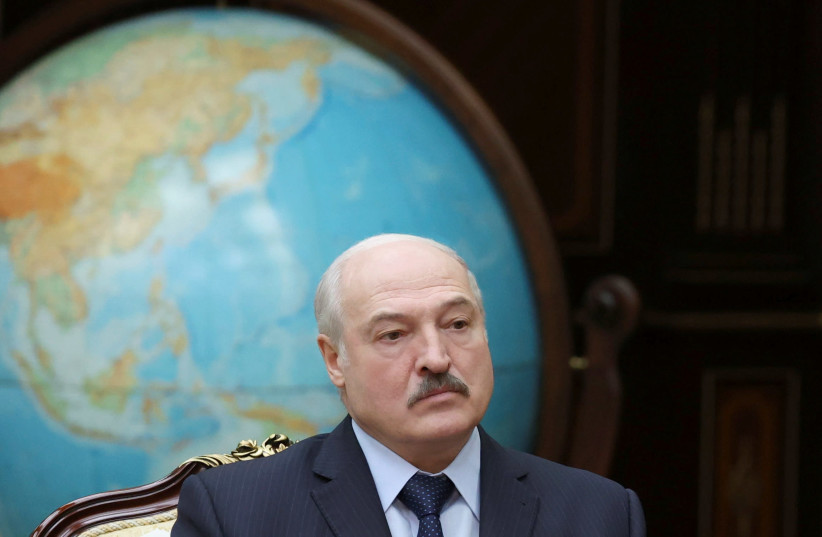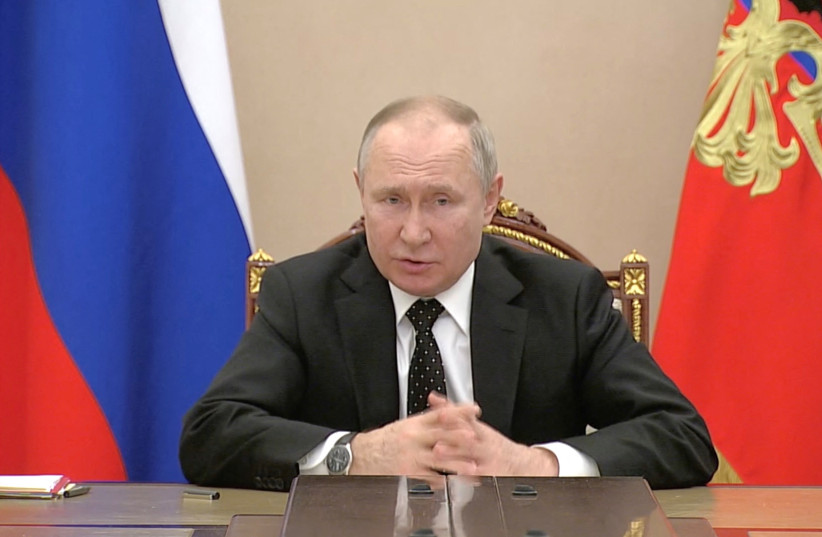The vote is almost certain to pass under the rule of President Alexander Lukashenko and could mean there will be nuclear weapons on Belarusian soil.

Belarus held a referendum on Sunday to adopt a new constitution that would ditch its non-nuclear status at a time when the country has become a launchpad for Russian troops invading Ukraine and marching on Kyiv.
The vote, almost certain to pass under the tightly controlled rule of President Alexander Lukashenko, could see nuclear weapons on Belarusian soil for the first time since the country gave them up after the fall of the Soviet Union.
It raises the stakes at a time when Lukashenko has fallen behind Russian President Vladimir Putin’s military assault on Ukraine after earlier playing an intermediary role between the two neighbors.
On Sunday, speaking at a polling station, Lukashenko said that he could ask Russia to return nuclear weapons to Belarus.
“If you (the West) transfer nuclear weapons to Poland or Lithuania, to our borders, then I will turn to Putin to return the nuclear weapons that I gave away without any conditions,” Lukashenko said.

Lukashenko turned to Russia after mass protests erupted against his 28-year-long rule in August 2020, weathering Western sanctions with the help of Russian loans.
His rival in the 2020 vote, exiled opposition leader Sviatlana Tsikhanouskaya, called on Belarusians to use the referendum vote to protest the war against Ukraine.
“For a long time I did not know how to start this appeal. Because how can you demand courageous actions from people who live in fear for a year and a half? The war we’ve been dragged into started two days ago,” she said in a special address.
“But until now, the Belarusians have not declared publicly that they are against it, they have not shown this to the Ukrainians by their actions. So do I have the right to ask you for action? Maybe not. But I won’t forgive myself if I don’t try.”
In videos and photos posted on social media, dozens of people gathered at polling stations in Minsk and other cities in Belarus. Several videos showed the crowd chanting “No to war.”
“There is little we can do now, with all this terror and horror in which we live. But I wouldn’t forgive myself if I didn’t try to do something. We are already considered accomplices,” said Elena, 45, who came to one of the polling stations along with a couple of dozen people. She declined to provide further information about herself for security reasons.
The West has already said it will not recognize the results of the referendum, which is taking place against the background of a sweeping crackdown on domestic opponents of the government. According to human rights activists, as of Sunday, there were more than a thousand political prisoners in Belarus.
On Sunday, amateur ensembles performed at polling stations, food and cheap alcohol were sold in buffets.
The new constitution would give powers to the All-Belarusian People’s Assembly, created by Lukashenko and populated by party loyalists, local councils, officials and activists of pro-government organizations.
It would also give lifetime immunity from prosecution to the president once he left office.
Content retrieved from: https://www.jpost.com/international/article-698809.